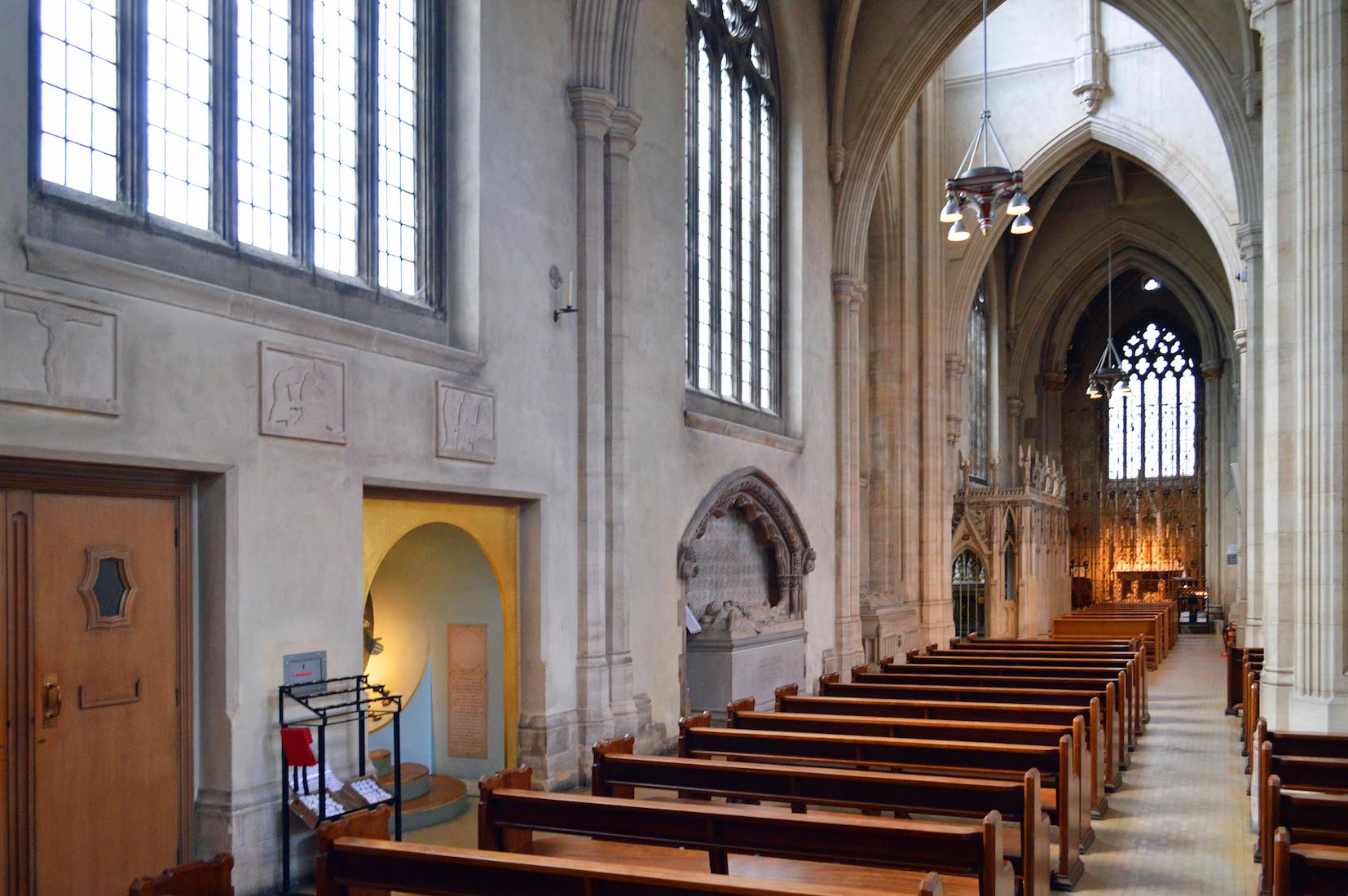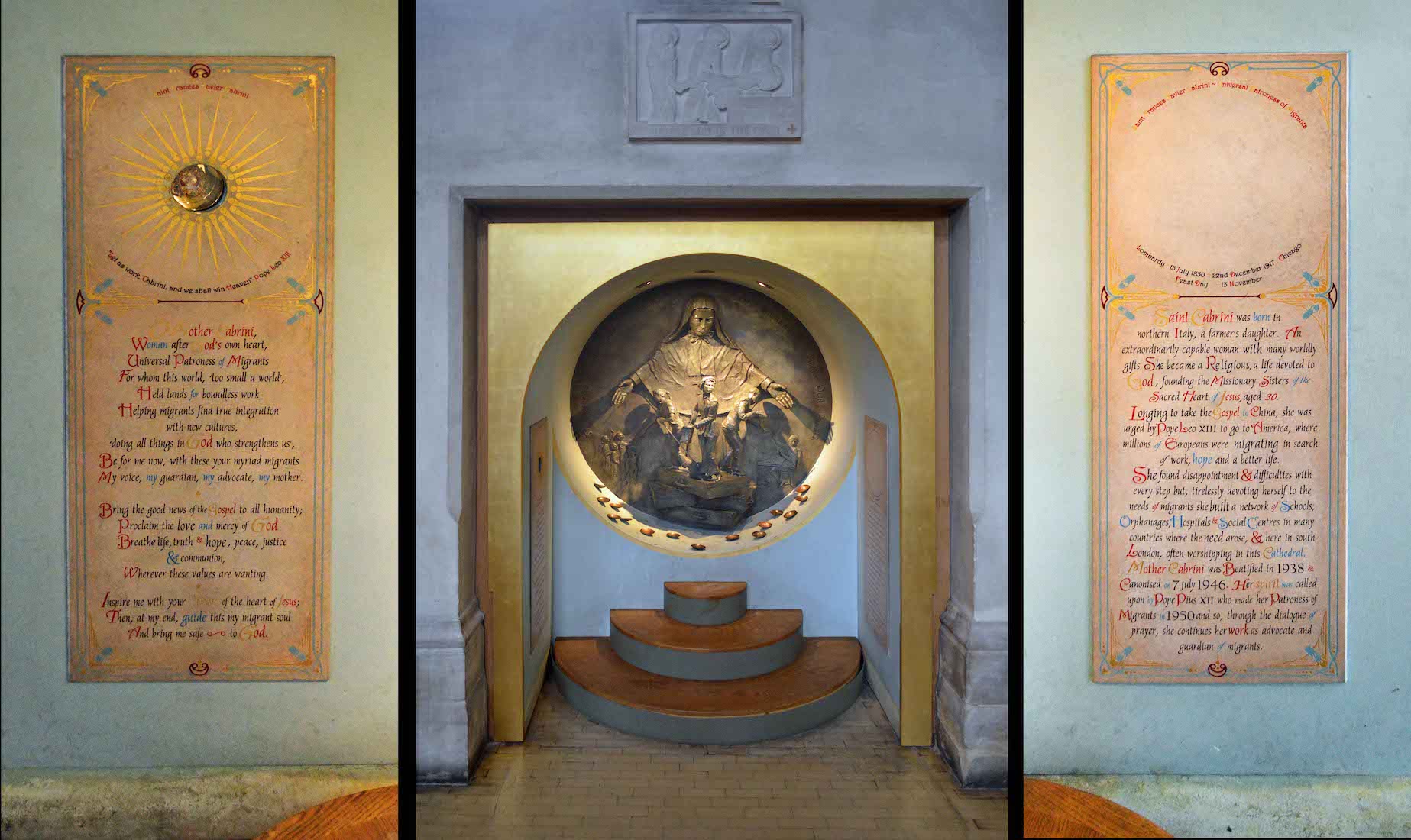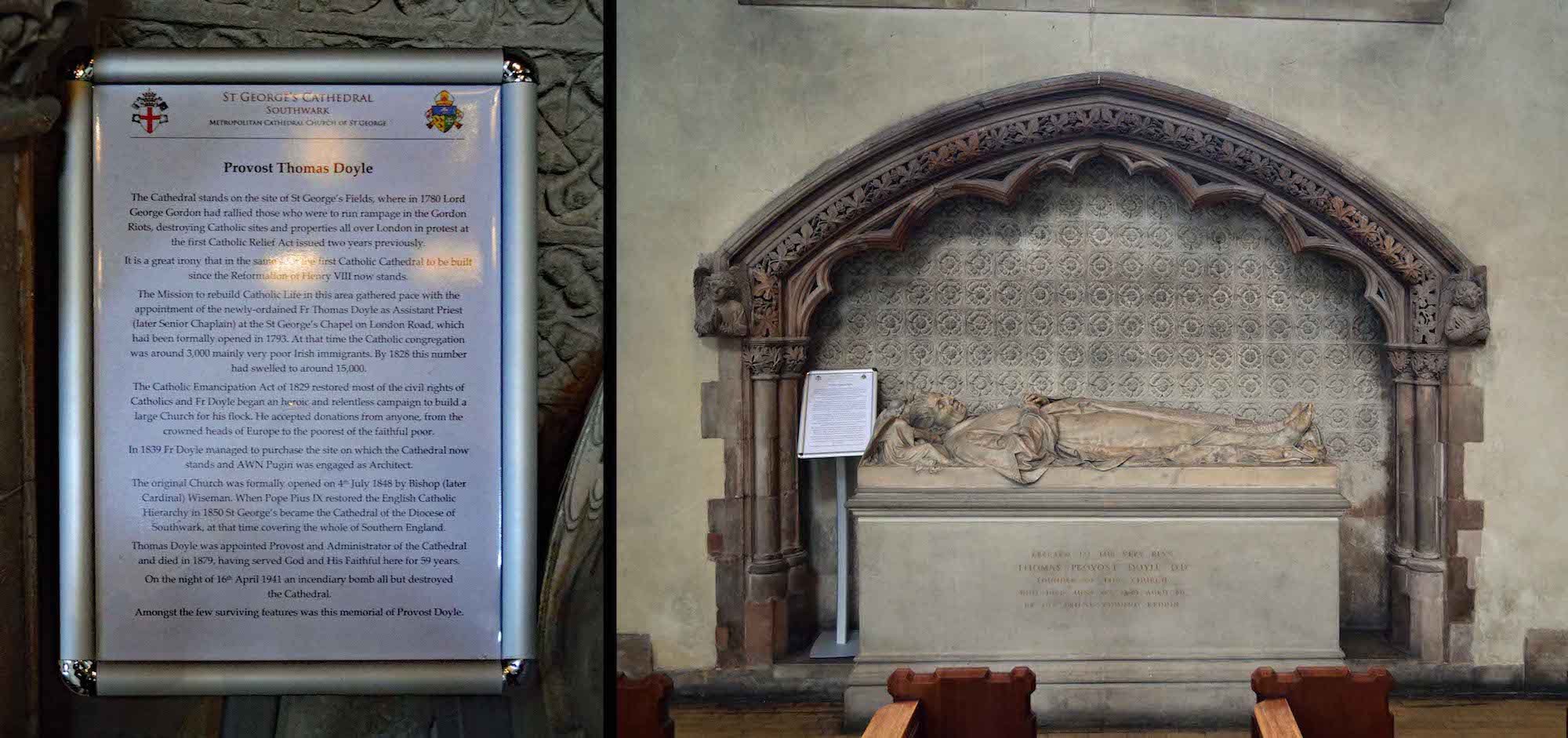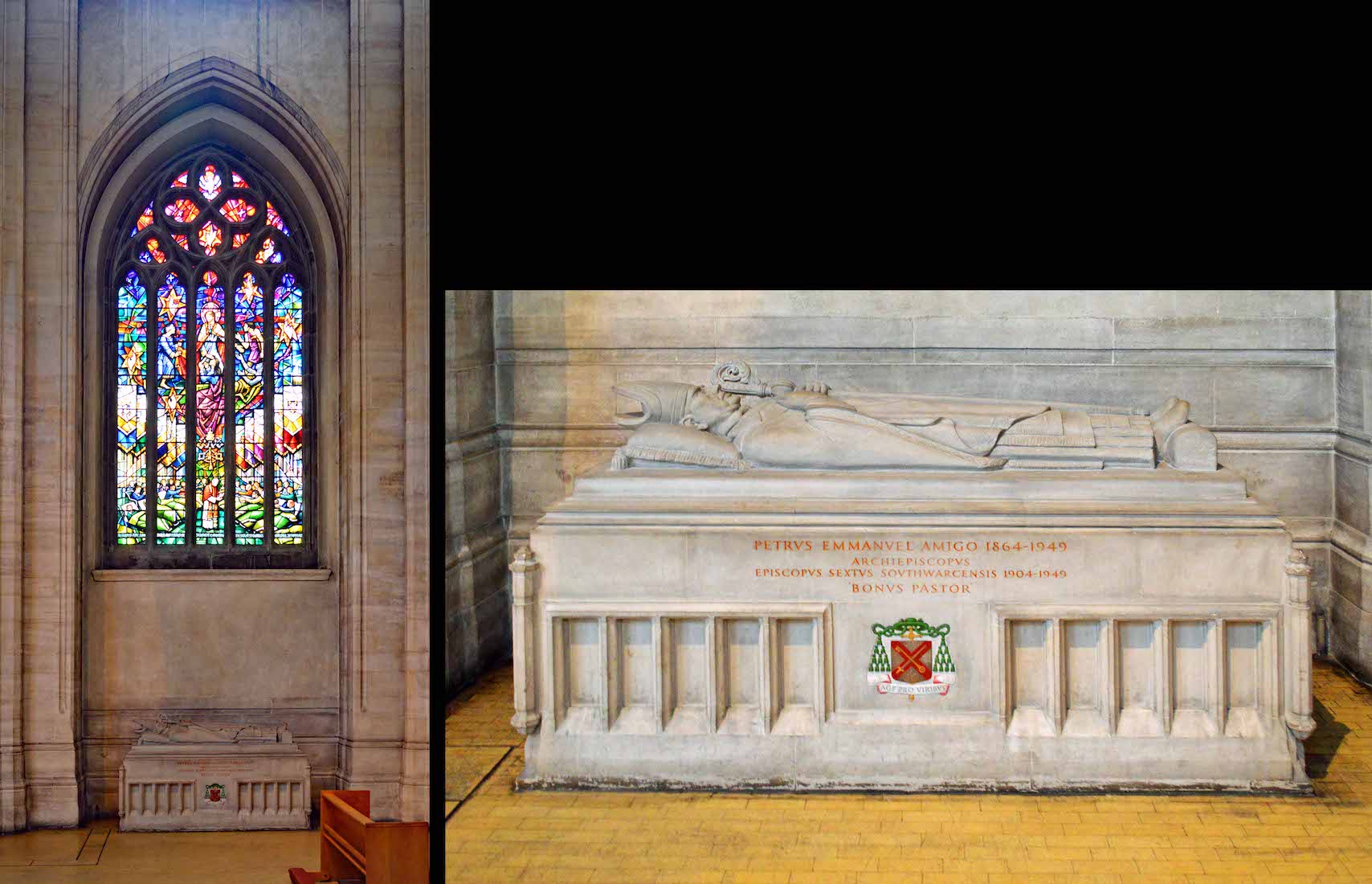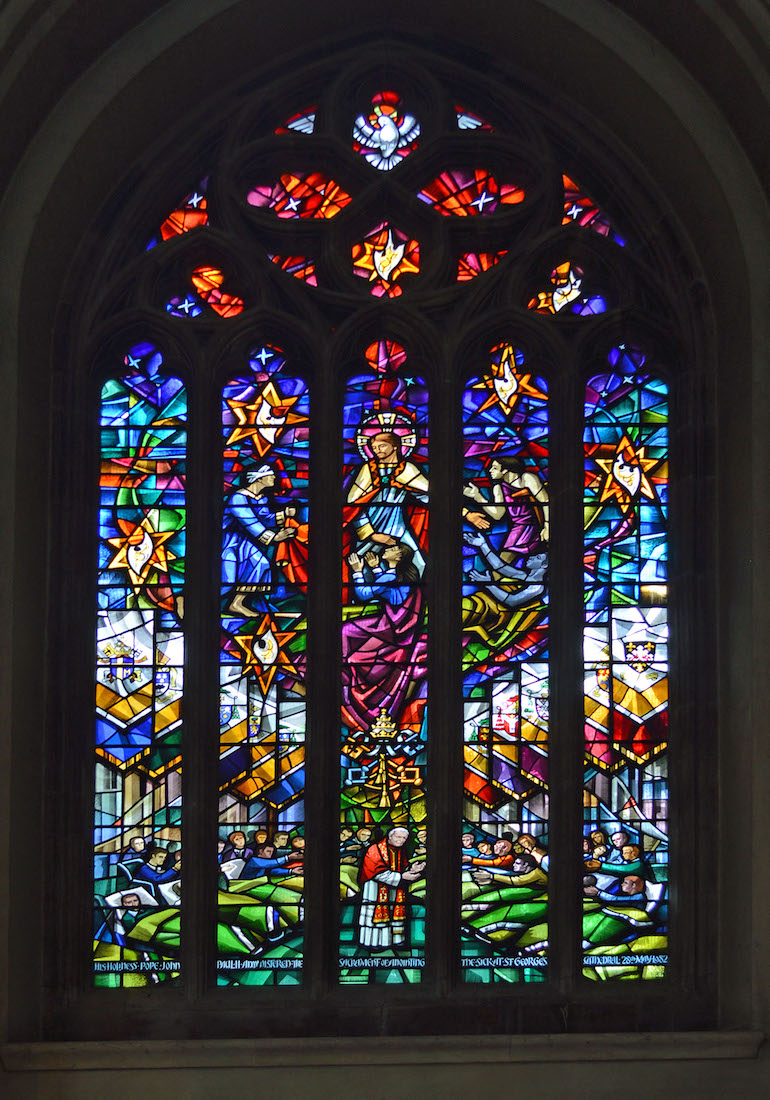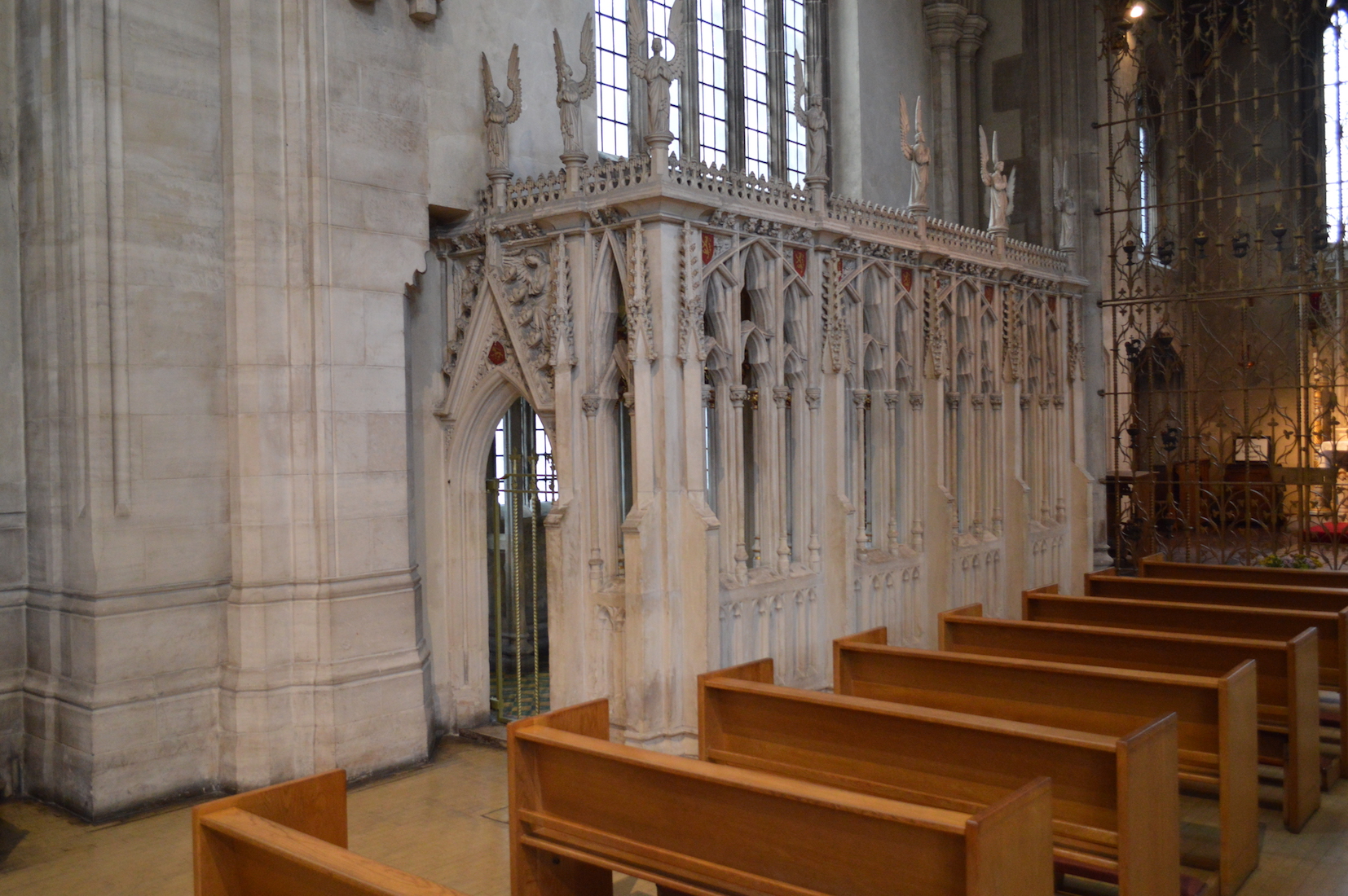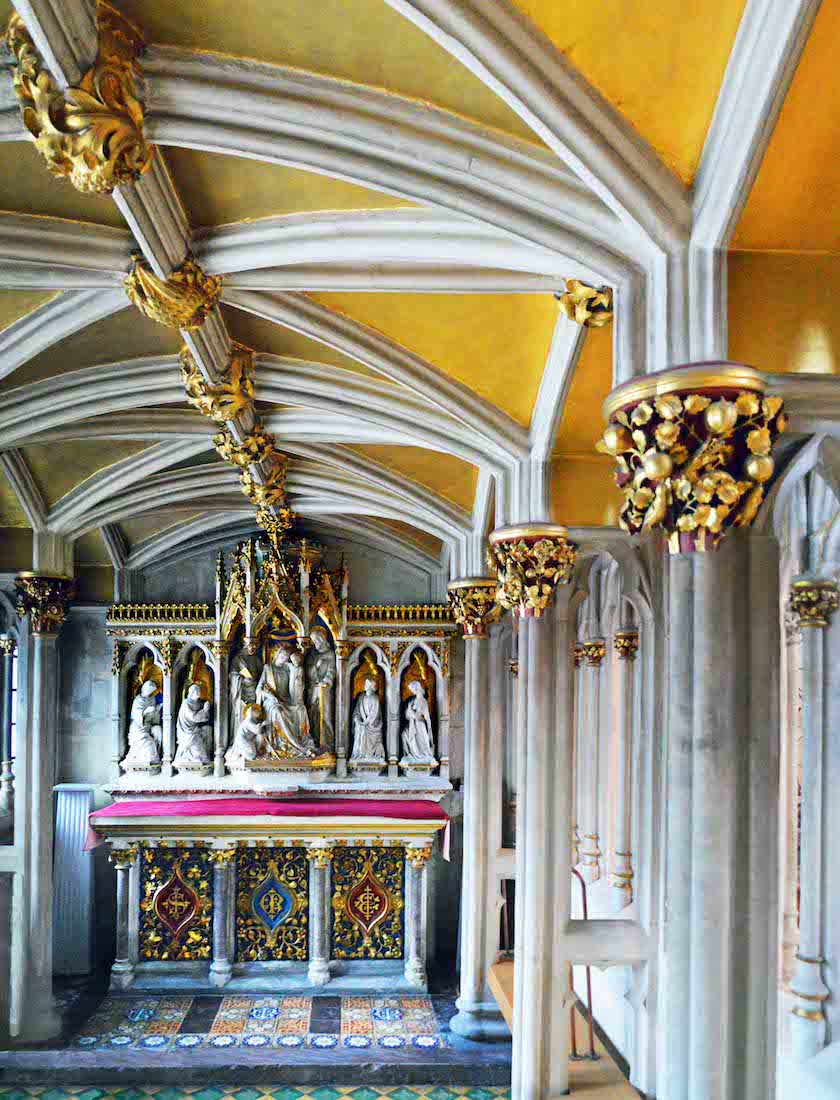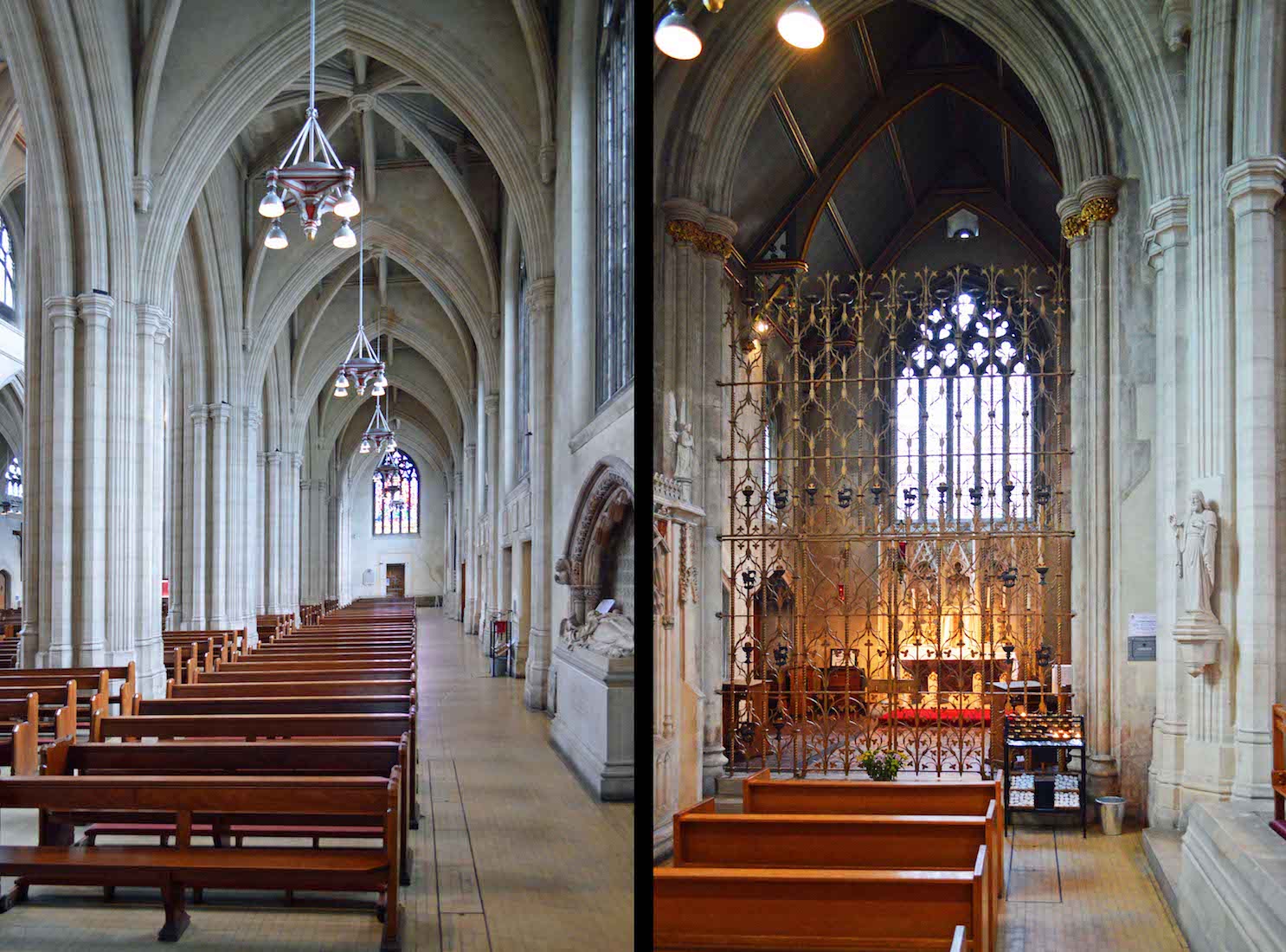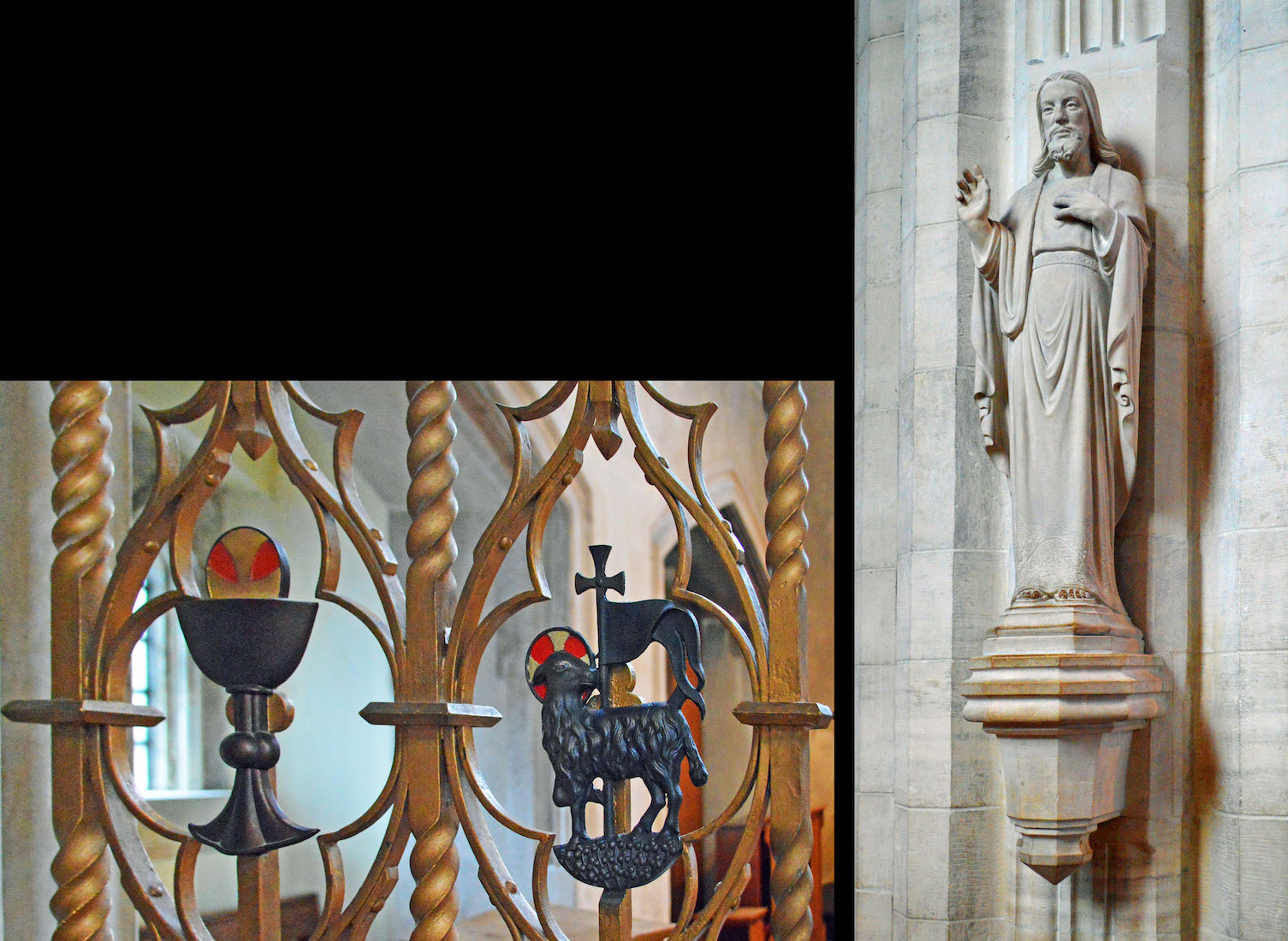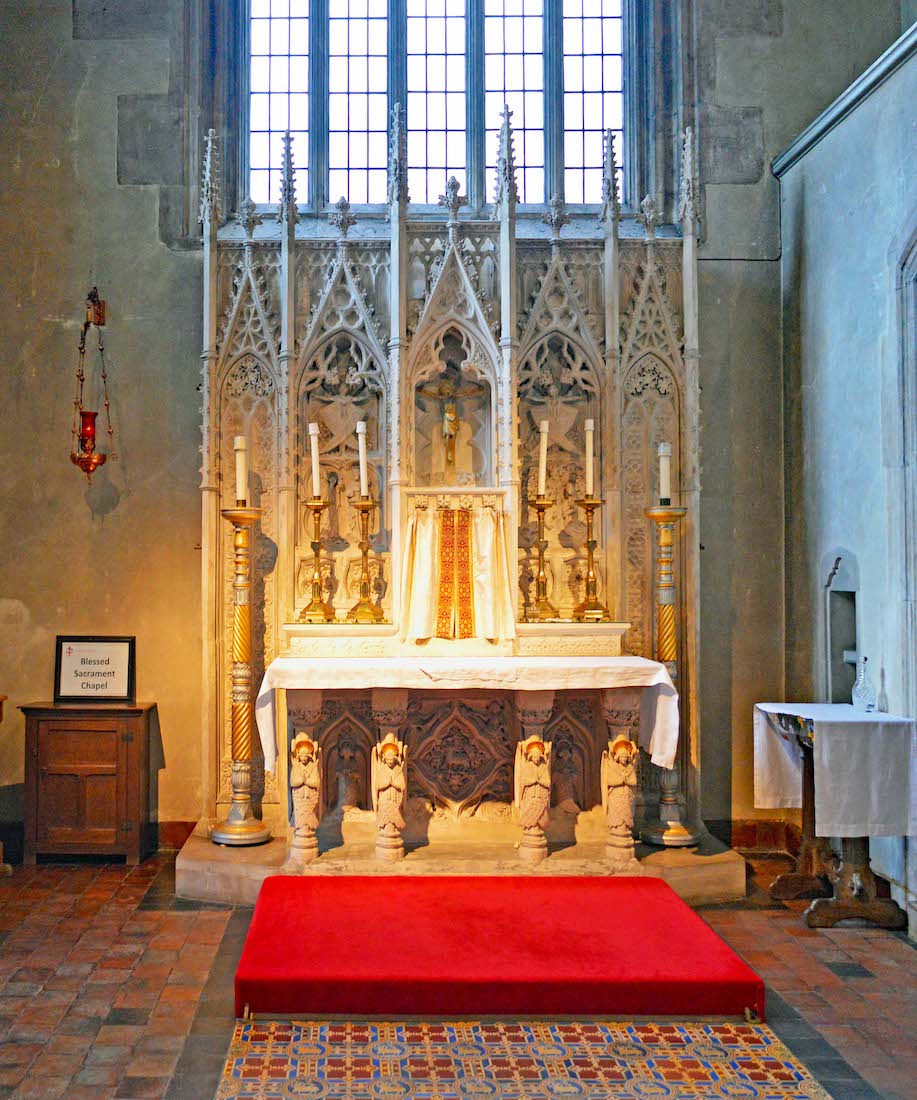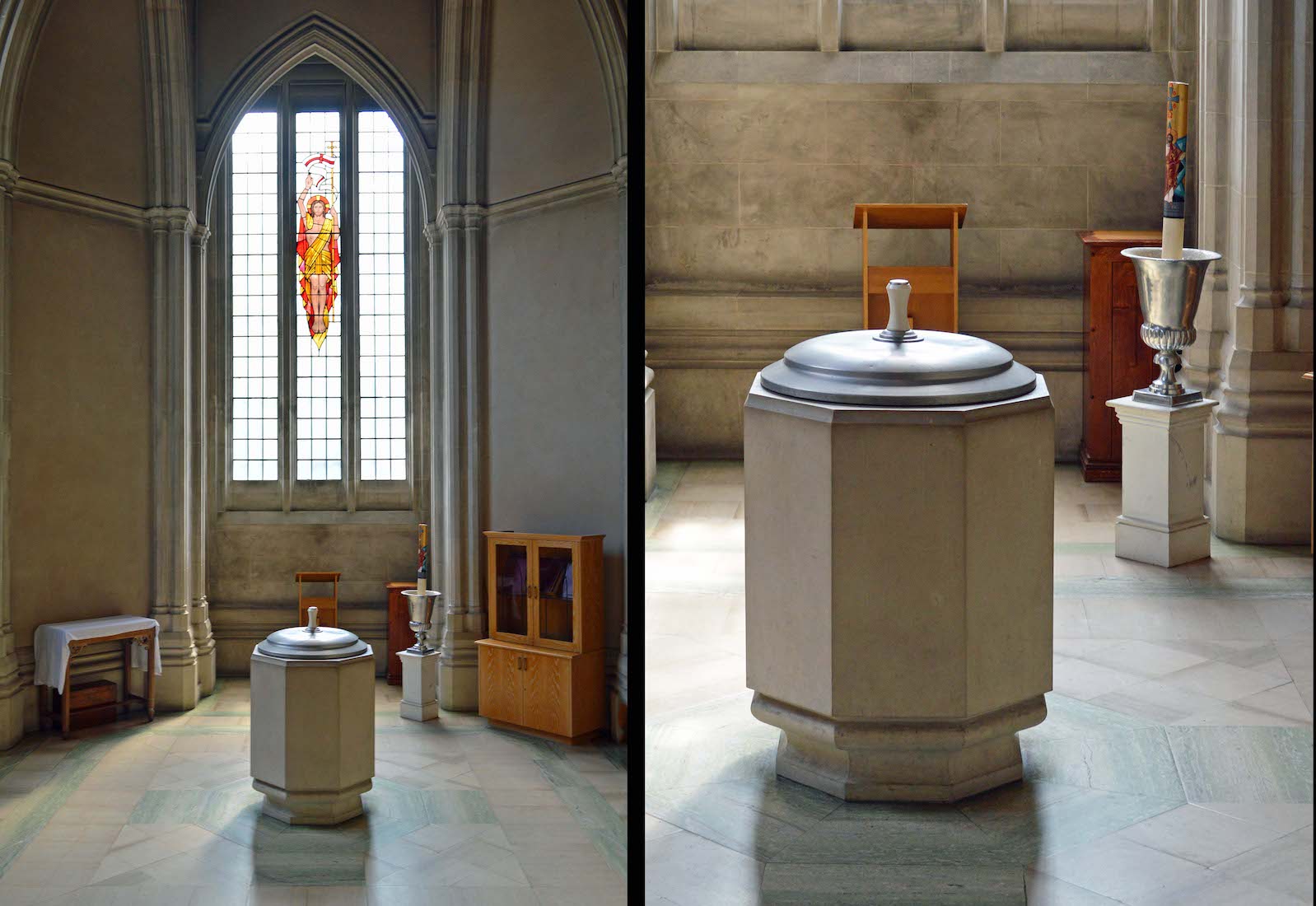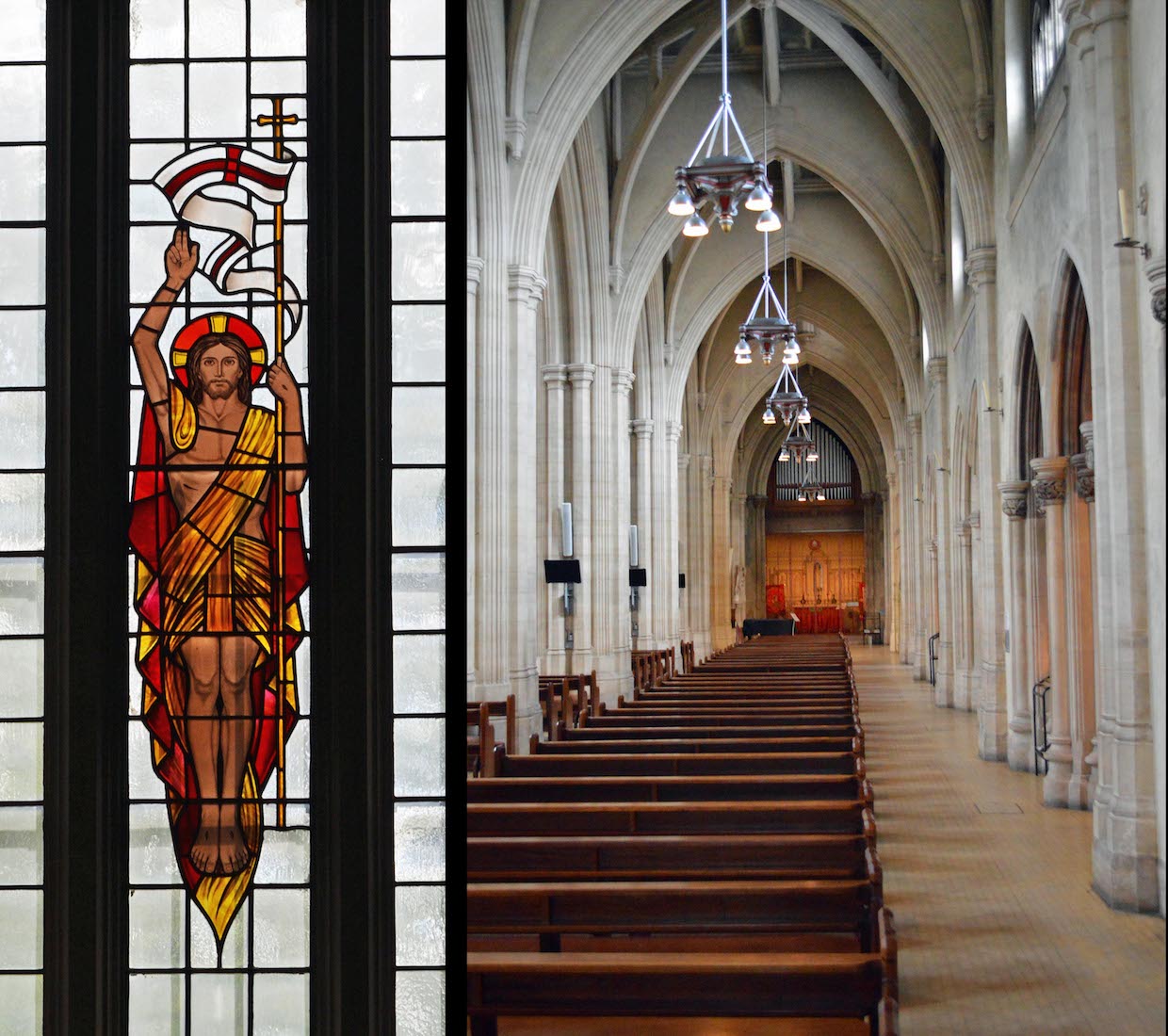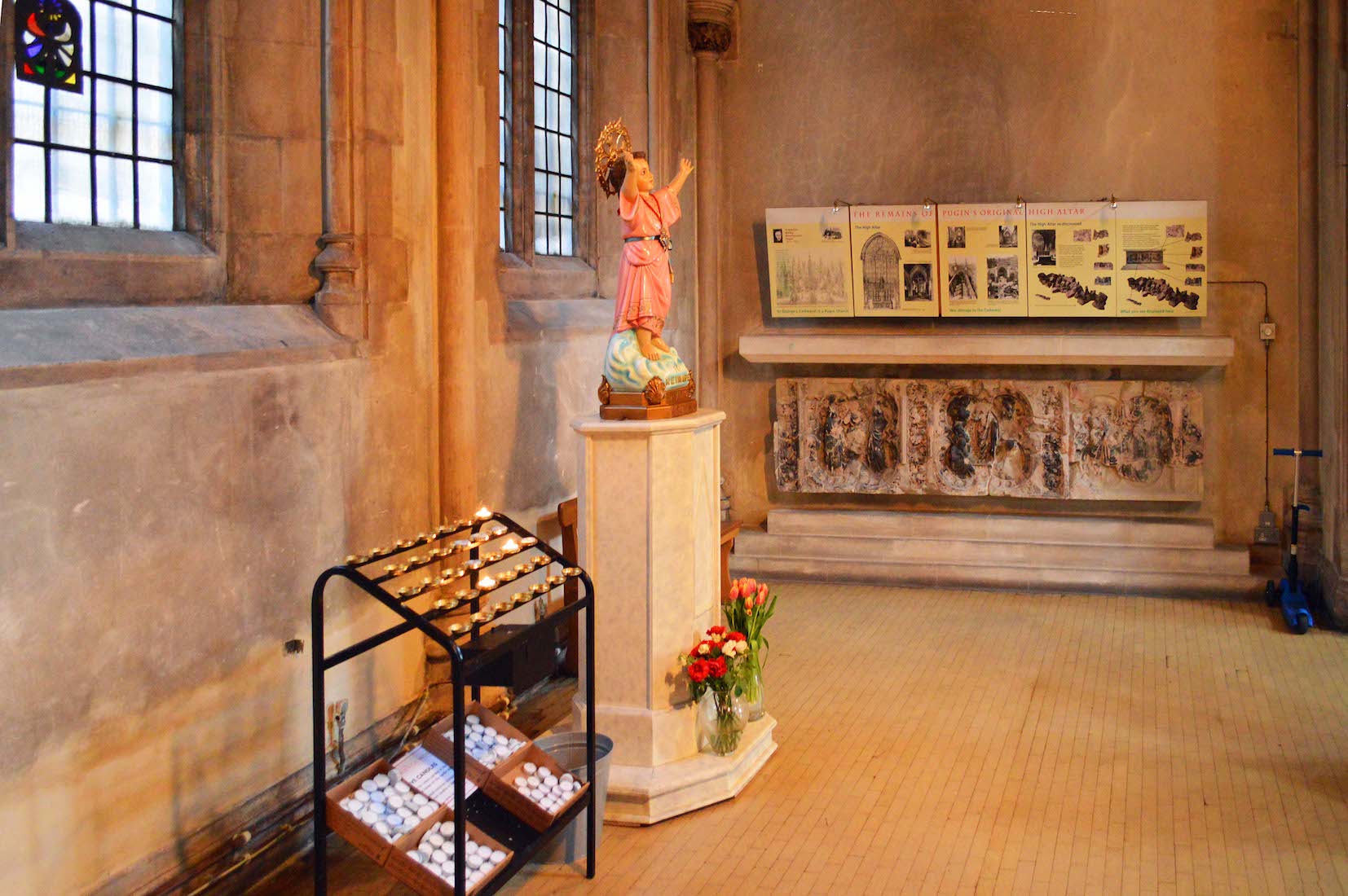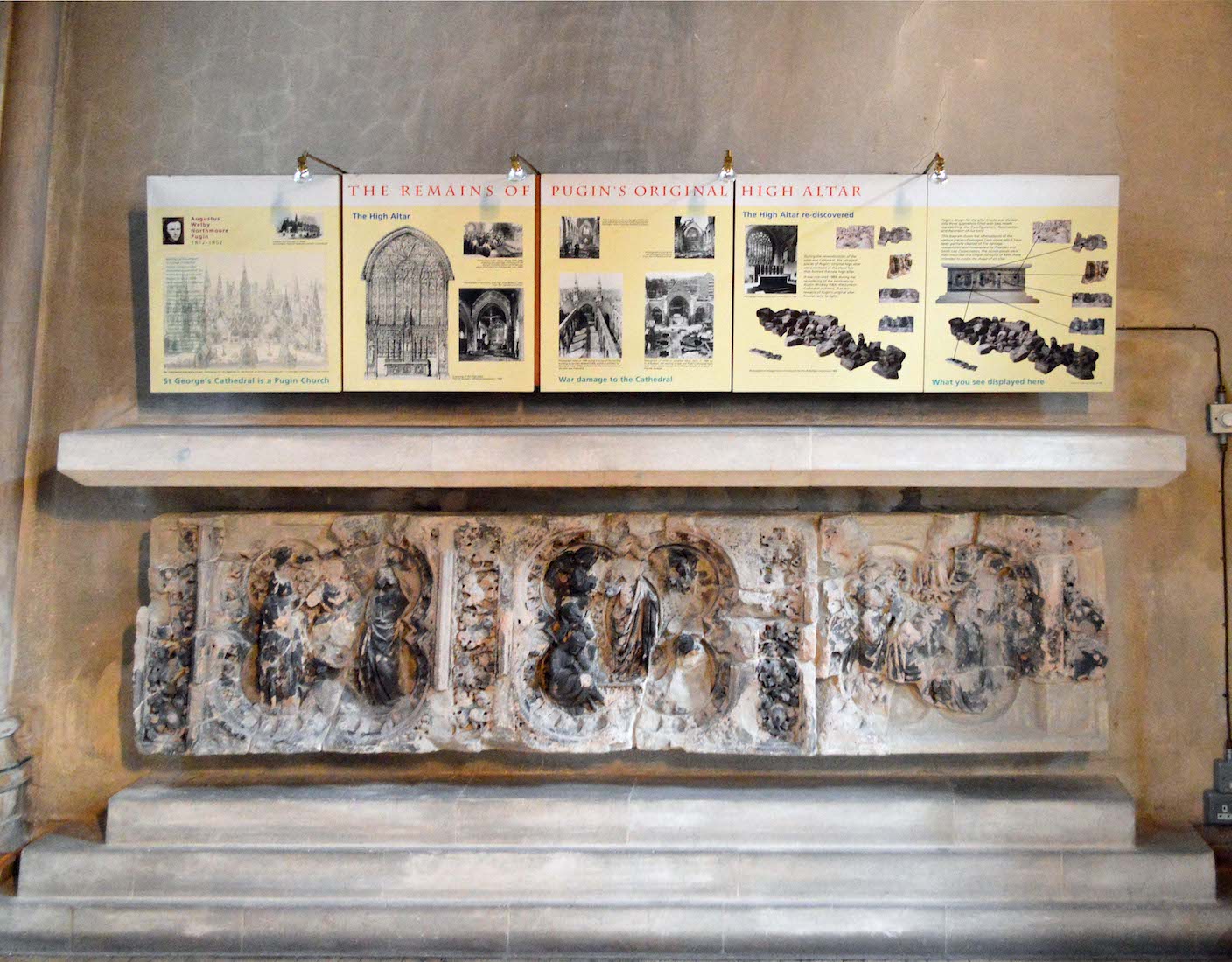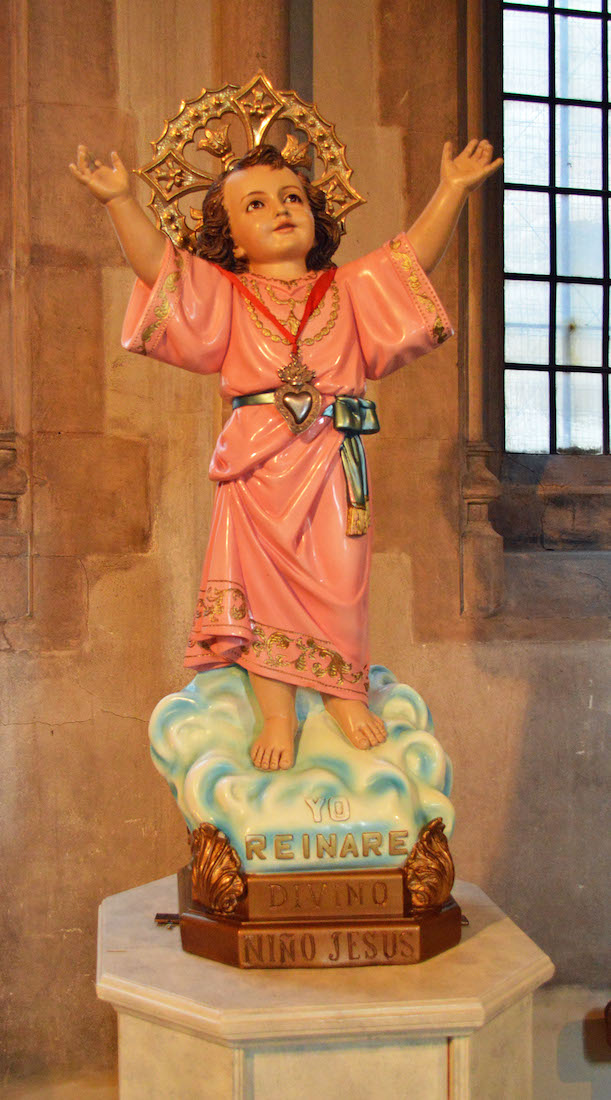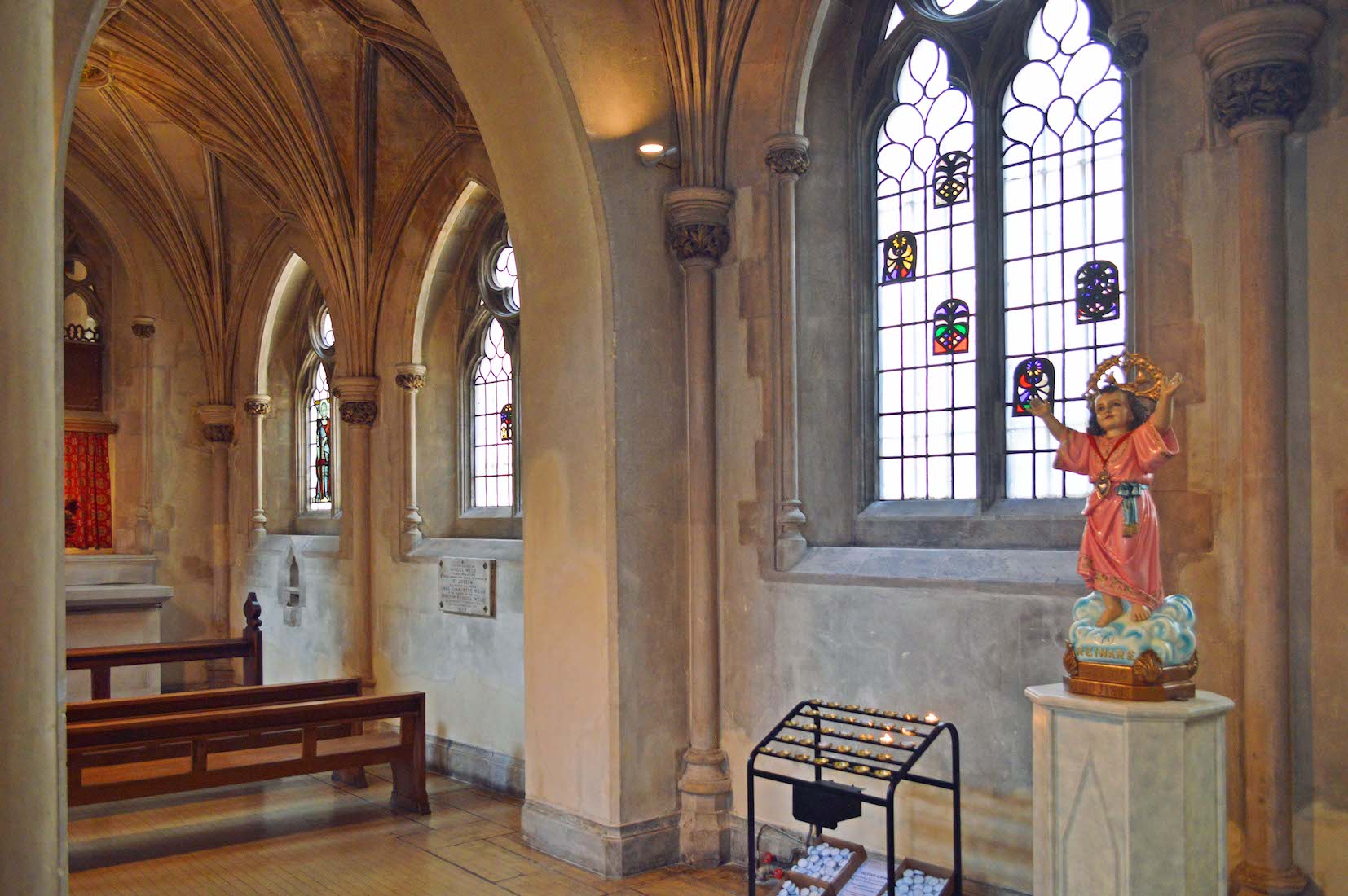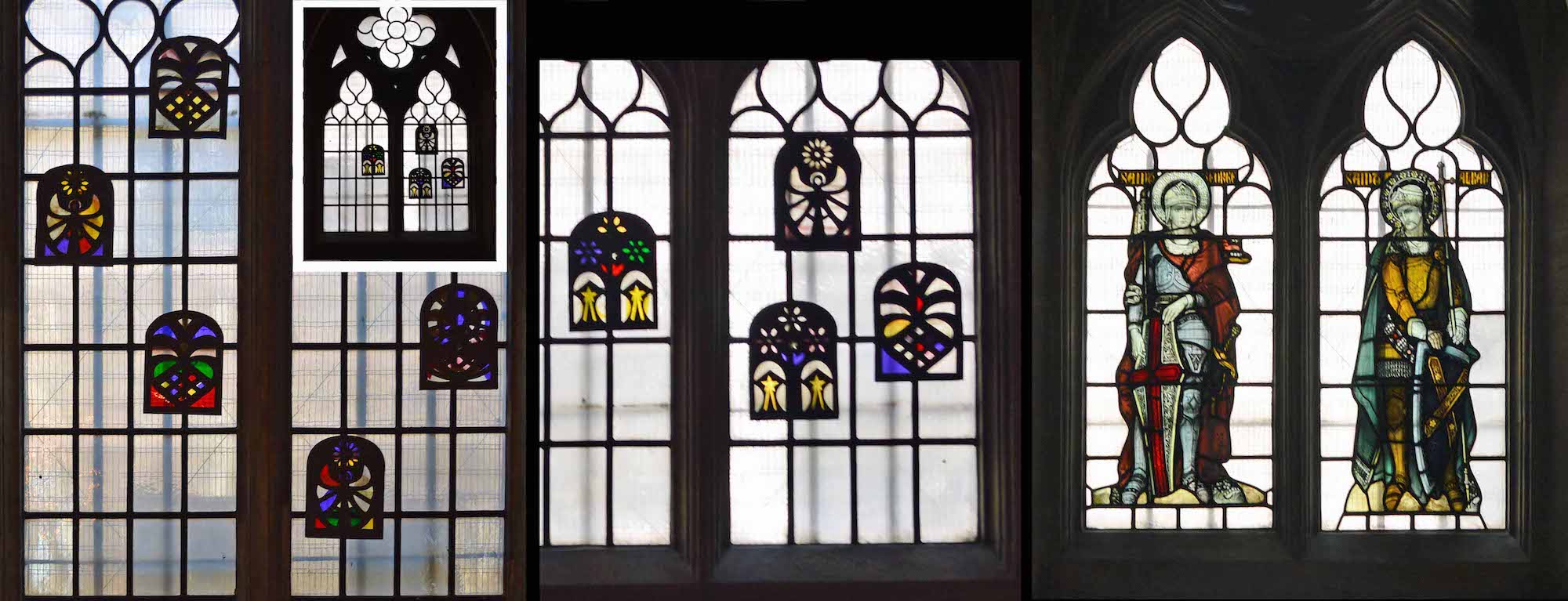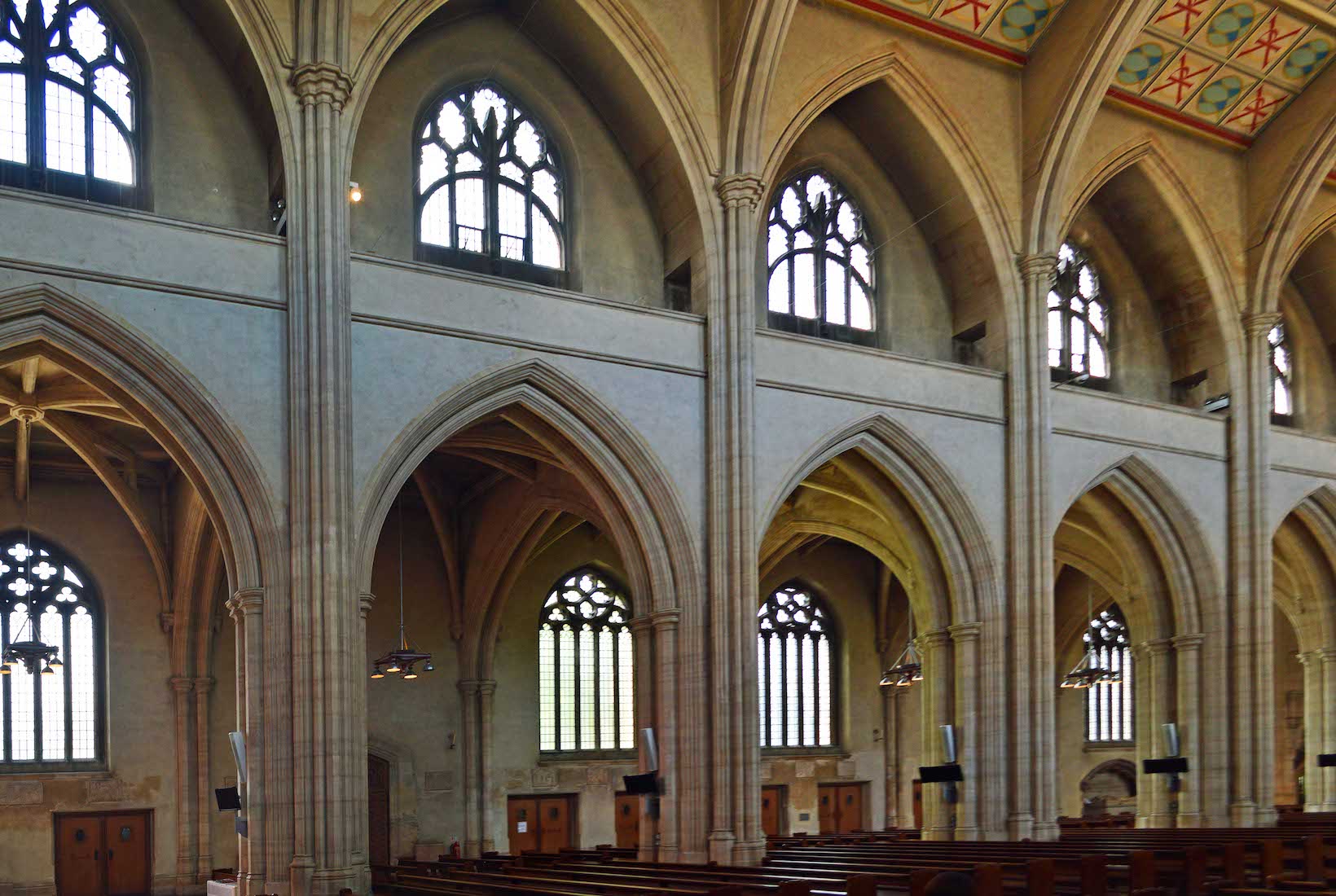
This view shows the arrangement of clear side and clerestory windows along the nave North wall. There are several old style confessionals along this wall towards the Western end. Some cathedrals now refer to these as reconciliation rooms. There are also various shrines along this wall to the East. Others are proposed. PLAN
22. STATIONS AND CONFESSIONALS
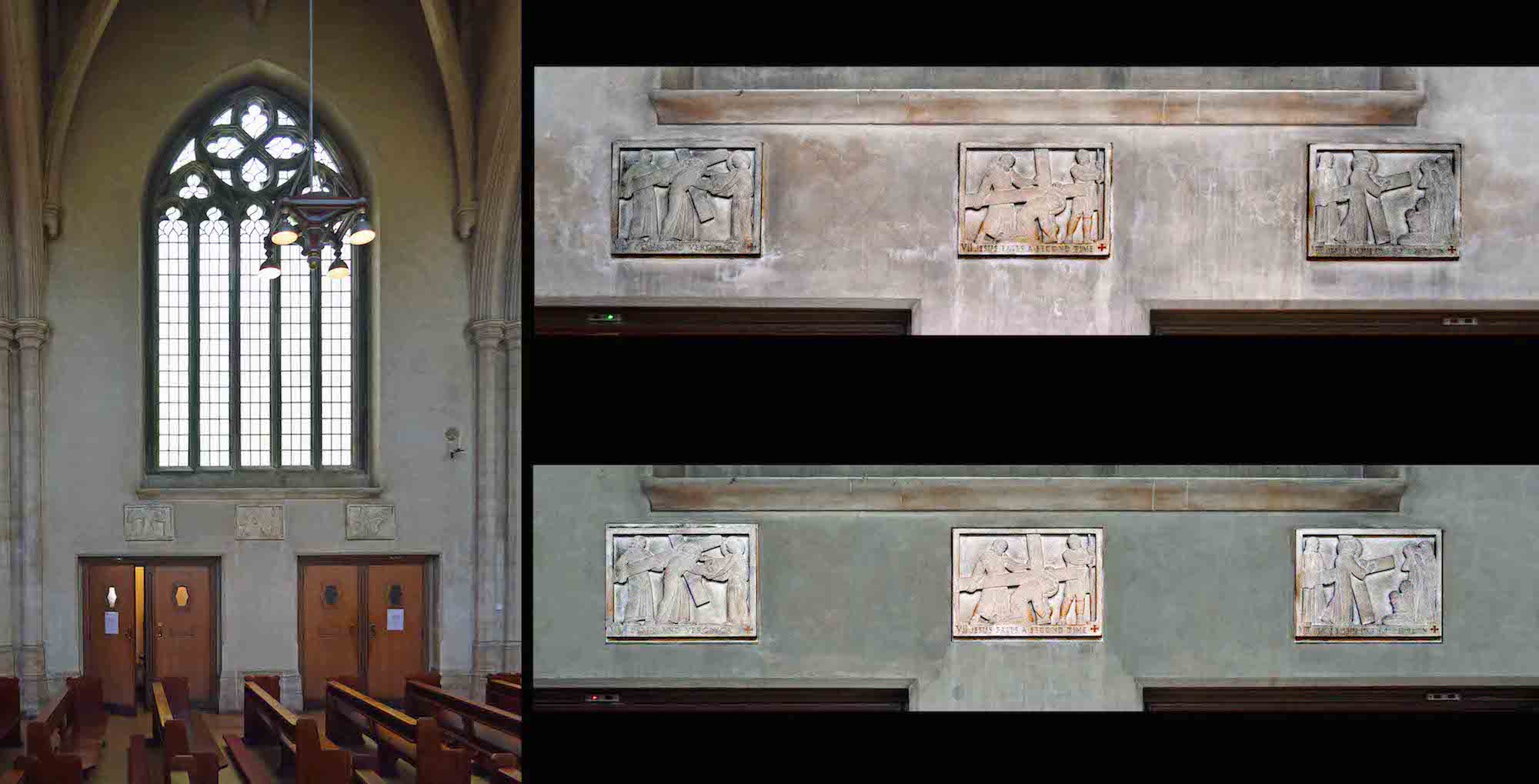
Above the confessional doors (and elsewhere) are the Stations of the Cross. These date from the 1950s, and were designed by Henry J. Youngman. The Stations illustrate the last journey of Jesus to the Cross, and are used as an aid to meditation, particularly over the Easter period.
23. NORTH AISLE
Moving further along the North aisle we come to the St Cabrini shrine, and then an effigy and tomb chest. The next partition is interesting: another effigy, but set below the higher vault of the North transept. This transept has been ‘absorbed’ into the North nave aisle.
24. ST CABRINI SHRINE
The shrine was erected in 2010. Frances Cabrini is the patron saint of migrants, and the first canonized saint of USA. She created a world-wide network of schools, orphanages, hospitals and school centres. She also founded the Missionary Sisters of the Sacred Heart. The design work was done by the Gillick Brothers.
25. THOMAS DOYLE EFFIGY
Continuing down the North aisle we come to the effigy and tomb chest of Provost Thomas Doyle 1882. He was founder of the Cathedral. His feet rest on a charming dragon. The memorial was made by Farmer and Brindley. It is worth reading the notes on the stand here: Catholics had such a hard time in early England!
26. WINDOW AND EFFIGY
We are now standing in the North transept, and this window is called the Papal Visit Window. Below the window is a tomb chest and effigy which is a memorial to Archbishop Amigo, Bishop of Southwark 1904–1949. He was given the personal title of Archbishop at his Golden Jubilee. He was known as ‘Friend of the Poor’.
27. THE PAPAL VISIT WINDOW
Pope John Paul II held a Liturgy for the Sick here in 1982. The window commemorates that visit and is by Goddard and Gibbs. We now find ourselves at the Knill Chantry.
28. KNILL CHANTRY
The Knill Chantry was designed by Pugin’s son Edward, and dates from 1857. The Knills were benefactors of St George’s over several generations. Stuart Knill (later Sir Stuart) who commissioned the chantry, became Lord Mayor of London in 1892-3, and his son Sir John became Lord Mayor in 1909-10. Stuart’s cousin married Pugin, becoming his third wife.
29. INSIDE THE CHANTRY
The Chantry is dedicated to the Holy Family, who are depicted on the reredos. There are worshipping angels on either side.
30. NORTH AISLE
The long North aisle ends at the East end with a golden screen, behind which is the Blessed Sacrament Chapel.
31. SCREEN AND SACRED HEART
The screen is decorated with alternating images of The Chalice with Wafer, and the Lamb with Banner. The second image alludes to Jesus being the Lamb of God (Agnus Dei). At the right of the screen is the statue of the Sacred Heart of Jesus from the 1950s by Harry J. Youngman.
32. BLESSED SACRAMENT CHAPEL
The Blessed Sacrament Chapel, dating from 1848, is one of the few remaining original parts of the Cathedral. The altar, reredos, encaustic floor tiles and wrought iron gates are all original, all to Pugin’s design. The tiles were made by Hubert Minton of Stoke, and the gates by John Hardman of Birmingham. Originally the effect was far richer, with decoration on every surface, red ceiling panels, and stained glass windows. The ever-burning lamp indicates the continuing presence of the reserved Sacrament in the Tabernacle.
34. BAPTISTRY WINDOW AND AISLE
The baptistry window represents the Resurrection: it is by Harry Charles Studios. We leave the Baptistry and walk down along the South aisle, until we reach the large St Joseph’s Chapel on our right.
35. ST JOSEPH’S CHAPEL
This chapel, dating from 1889, was endowed by Baroness Weld in memory of her late husband Samuel Weld and son Gordon. The decorative details were copied from Pugin’s plans.
36. PART OF OLD HIGH ALTAR
Reassembled pieces of Pugin’s 1848 high altar are on display at the Western end of the chapel.
37. DISPLAY BOARD
The display board gives some explanation of how the high altar originally looked, and how the displayed pieces fit together. It also gives some details of the damage inflicted on the cathedral during WWII.
38. DIVINE CHILD
In the middle of St Joseph’ Chapel stands this statue: Niño Jesus. This is a copy of a 20th-century religious wooden statue of the·child Jesus·originating from·Bogota, Colombia. A cross originally in the back was removed upon purchase by Father Giovanni Rizzo. The 17-centimeter high statue with arms stretched out wide and wearing a traditional pink robe or tunic has an inscription ‘Yo reinaré’ (‘I will reign’) at its base. It is one of the most popular religious images in·Colombia, especially among·Roman Catholics and it is claimed to have miraculous powers of fertility and healing.
39. SOUTHEAST VIEW OF CHAPEL
Looking towards the East in this chapel we notice the windows, and catch a glimpse of the chapel altar.
40. CHAPEL WINDOWS
All the windows in this chapel have the same design as shown in the inset. The far windows depict St George and St Alban, and these are original. St George is the patron saint of this Cathedral; Saint Alban is venerated as the first-recorded British Christian martyr. The other two windows are of plain lattice with colourful badges. The images which appear here include stars, angels, hearts and flowers.


